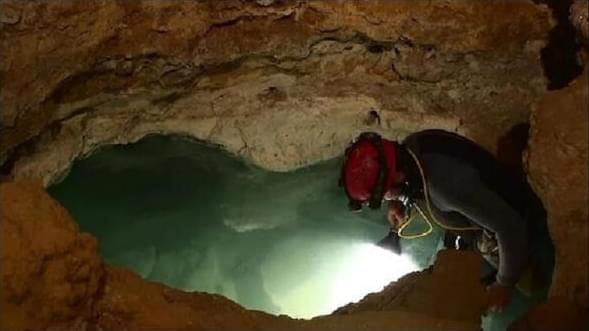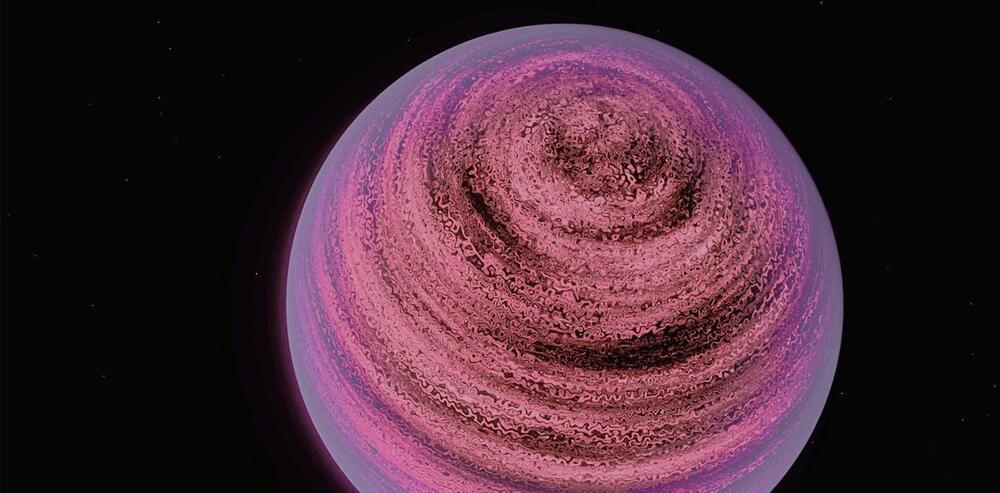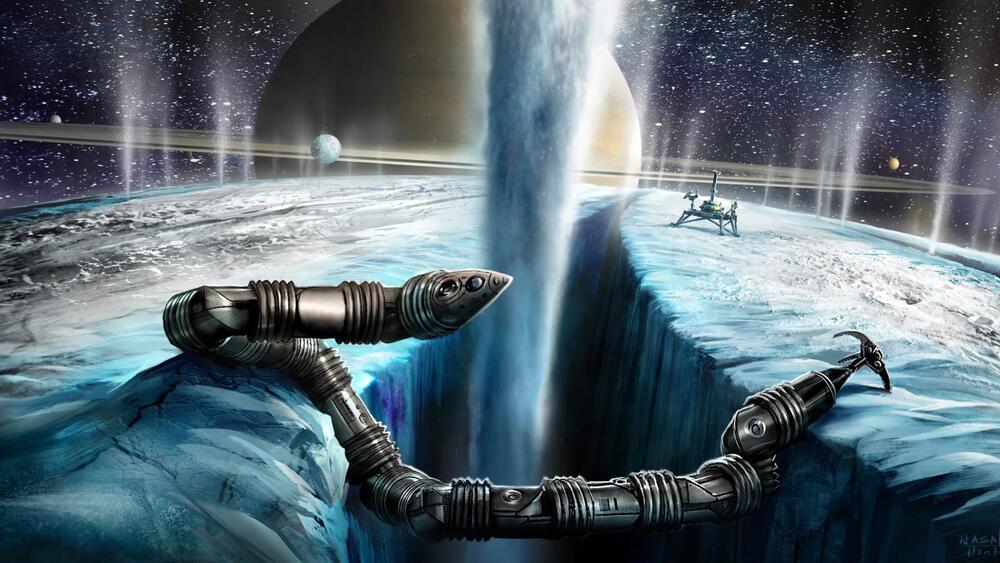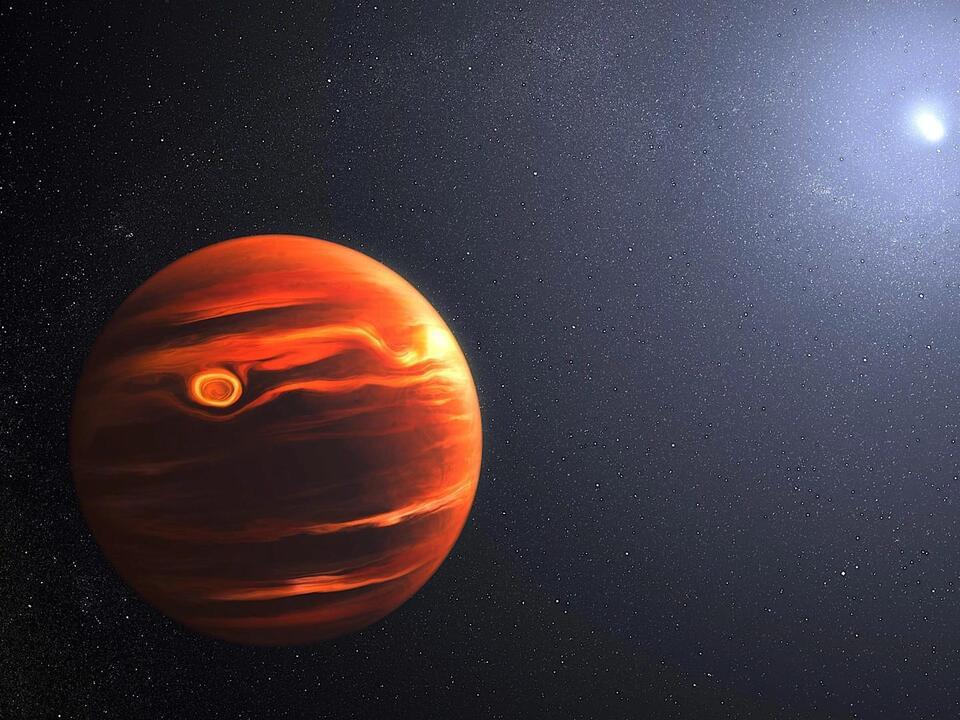‘Peculiar’ blob-like species discovered thriving in ‘toxic’ Romanian cave, study says.


Do you like our content? Please support PRO Robots on Patreon.
—
https://www.patreon.com/PRORobots.
—
Your contributions will help us to create better content and to improve our service for you and our PRO Robots community. Every dollar counts and will help us keep working for you.
Thank you for your support!
—
👉For business inquiries: [email protected].
✅ Instagram: https://www.instagram.com/pro_robots.
Do you know why humanity still doesn’t have colonies on the Moon or Mars? Because the big companies that might’ve invested their money in building the said colonies are not sure when they’ll get their investments back and start making a solid profit. Well, at least that’s one of the reasons.
But the cheaper space flights will get and further the technologies that can help cost-efficiently settle on other planets will develop, the more countries, billionaires, tech giants, startups and institutions will get into the space race, whose finish line is right on the Red Planet. Why are they reluctant to do this? Are they afraid of future cataclysms? Do they know something we don’t? Are they dreaming of claiming the title of pioneers? Or hoping to mine rare metals in the asteroid belt?
Watch this video to find out all about the whens and hows of life on Mars, as well as about its outcomes, including a new round of human evolution and the possible demise of the planet itself! Wheels up!
00:00 In this video.
01:00 Mars will try to kill you.
01:30 Mars is a totally hostile environment for human life.
02:25 With Mars, Earthlings have a better chance.
04:01 What have we already found on the Red Planet?
05:22 Ilon Musk.
06:04 Prolonged flight exposes people to the greatest horror.
07:45 development of new super-powered engines.
08:24 an inflatable heat shield for astronauts to land on the planet.
09:12 Mars has no planetary magnetic field.
10:27 But the astronauts won’t spend all their time in spacesuits.
12:23 What about food on Mars?
13:30 a new round of human evolution on mars.
#prorobots #robots #robot #futuretechnologies #robotics.
Max Tegmark is a physicist and AI researcher at MIT, co-founder of the Future of Life Institute, and author of Life 3.0: Being Human in the Age of Artificial Intelligence. Please support this podcast by checking out our sponsors:
- Notion: https://notion.com.
- InsideTracker: https://insidetracker.com/lex to get 20% off.
- Indeed: https://indeed.com/lex to get $75 credit.
EPISODE LINKS:
Max’s Twitter: https://twitter.com/tegmark.
Max’s Website: https://space.mit.edu/home/tegmark.
Pause Giant AI Experiments (open letter): https://futureoflife.org/open-letter/pause-giant-ai-experiments.
Future of Life Institute: https://futureoflife.org.
Books and resources mentioned:
1. Life 3.0 (book): https://amzn.to/3UB9rXB
2. Meditations on Moloch (essay): https://slatestarcodex.com/2014/07/30/meditations-on-moloch.
3. Nuclear winter paper: https://nature.com/articles/s43016-022-00573-0
PODCAST INFO:
Podcast website: https://lexfridman.com/podcast.
Apple Podcasts: https://apple.co/2lwqZIr.
Spotify: https://spoti.fi/2nEwCF8
RSS: https://lexfridman.com/feed/podcast/
Full episodes playlist: https://www.youtube.com/playlist?list=PLrAXtmErZgOdP_8GztsuKi9nrraNbKKp4
Clips playlist: https://www.youtube.com/playlist?list=PLrAXtmErZgOeciFP3CBCIEElOJeitOr41
OUTLINE:
0:00 — Introduction.
1:56 — Intelligent alien civilizations.
14:20 — Life 3.0 and superintelligent AI
25:47 — Open letter to pause Giant AI Experiments.
50:54 — Maintaining control.
1:19:44 — Regulation.
1:30:34 — Job automation.
1:39:48 — Elon Musk.
2:01:31 — Open source.
2:08:01 — How AI may kill all humans.
2:18:32 — Consciousness.
2:27:54 — Nuclear winter.
2:38:21 — Questions for AGI
SOCIAL:
- Twitter: https://twitter.com/lexfridman.
- LinkedIn: https://www.linkedin.com/in/lexfridman.
- Facebook: https://www.facebook.com/lexfridman.
- Instagram: https://www.instagram.com/lexfridman.
- Medium: https://medium.com/@lexfridman.
- Reddit: https://reddit.com/r/lexfridman.
- Support on Patreon: https://www.patreon.com/lexfridman


This one-of-a-kind robot is an exobiology extant life surveyor (EELS) developed by NASA’s Jet Propulsion Laboratory.
It is time to move over the traditional wheeled or legged robots. NASA has developed a robotic concept that sounds straight out of a science-fiction and has the potential to take space exploration to the next level.
The US space agency has been working on sending a snake-like robot to explore and search for extraterrestrial life forms in the solar system. This robot is an exobiology extant life surveyor (EELS) developed by NASA’s Jet Propulsion Laboratory.
The snake-like robot’s capabilities.
NASA/JPL-CalTech.
Scientists have been working on sending a snake-like robot to explore and search for extraterrestrial life forms in the solar system. This robot is an exobiology extant life surveyor (EELS) developed by NASA’s Jet Propulsion Laboratory (JPL).
Whether this “complements or contradicts existing religious value systems depends largely on the interpretation of those systems by the people who have adopted them,” said Frank. “However, my interviews with astronauts of faith suggest that their religious perspective was strengthened, rather than being weakened.”
Frank notes that his cosmology has parallels with Yuval Harari ’s “dataism,” described by Harari as the “most interesting emerging religion.” Dataism, as defined by Harari, “says that the universe consists of data flows, and the value of any phenomenon or entity is determined by its contribution to data processing.” This may sound kind of cold and metallic, but if life is an algorithm and self-awareness is data processing the parallels with Frank’s ideas are evident.
At the MVA webinar there wasn’t time to address all the points I wanted to discuss with Frank. So I had this new conversation with him. Please find below my comments and questions (all related to space philosophy, cosmic metaphysics, and religion), and listen to hear Frank’s thoughtful replies and other points that came up.
Eliezer Yudkowsky is a researcher, writer, and philosopher on the topic of superintelligent AI. Please support this podcast by checking out our sponsors:
- Linode: https://linode.com/lex to get $100 free credit.
- House of Macadamias: https://houseofmacadamias.com/lex and use code LEX to get 20% off your first order.
- InsideTracker: https://insidetracker.com/lex to get 20% off.
EPISODE LINKS:
Eliezer’s Twitter: https://twitter.com/ESYudkowsky.
LessWrong Blog: https://lesswrong.com.
Eliezer’s Blog page: https://www.lesswrong.com/users/eliezer_yudkowsky.
Books and resources mentioned:
1. AGI Ruin (blog post): https://lesswrong.com/posts/uMQ3cqWDPHhjtiesc/agi-ruin-a-list-of-lethalities.
2. Adaptation and Natural Selection: https://amzn.to/40F5gfa.
PODCAST INFO:
Podcast website: https://lexfridman.com/podcast.
Apple Podcasts: https://apple.co/2lwqZIr.
Spotify: https://spoti.fi/2nEwCF8
RSS: https://lexfridman.com/feed/podcast/
Full episodes playlist: https://www.youtube.com/playlist?list=PLrAXtmErZgOdP_8GztsuKi9nrraNbKKp4
Clips playlist: https://www.youtube.com/playlist?list=PLrAXtmErZgOeciFP3CBCIEElOJeitOr41
OUTLINE:
0:00 — Introduction.
0:43 — GPT-4
23:23 — Open sourcing GPT-4
39:41 — Defining AGI
47:38 — AGI alignment.
1:30:30 — How AGI may kill us.
2:22:51 — Superintelligence.
2:30:03 — Evolution.
2:36:33 — Consciousness.
2:47:04 — Aliens.
2:52:35 — AGI Timeline.
3:00:35 — Ego.
3:06:27 — Advice for young people.
3:11:45 — Mortality.
3:13:26 — Love.
SOCIAL:
- Twitter: https://twitter.com/lexfridman.
- LinkedIn: https://www.linkedin.com/in/lexfridman.
- Facebook: https://www.facebook.com/lexfridman.
- Instagram: https://www.instagram.com/lexfridman.
- Medium: https://medium.com/@lexfridman.
- Reddit: https://reddit.com/r/lexfridman.
- Support on Patreon: https://www.patreon.com/lexfridman
Disclaimed: None of it is real. It’s just a movie, made mostly with AI, which took care of writing the script, creating the concept art, generating all the voices, and participating in some creative decisions. The AI-generated voices used in this film do not reflect the opinions and thoughts of their original owners. This short film was created as a demonstration to showcase the potential of AI in filmmaking.
#AI #Filmmaking #Aliens #Movies #ScienceFiction #SciFi #Films


NASA’s James Webb Space Telescope has proven just how powerful it is with its latest discovery: sand storms swirling on a planet 40 light-years from Earth, or about 235 trillion miles away.
One of Webb’s greatest powers is its ability to decipher what’s going on in alien atmospheres. From its vantage point in space, Webb can peer at a distant world and analyze the entire infrared spectrum of starlight passing through the planet’s atmosphere.
Different spectra of light correspond to different elements, so Webb can show astronomers exactly which gases and vapors are in another world’s atmosphere.